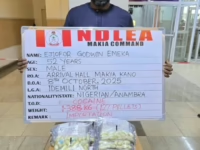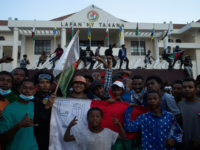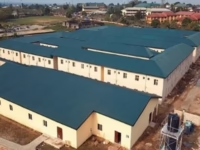This action follows the United States’ recent decision to require Malian nationals to post bonds ranging from $5,000 to $10,000 for certain visa categories.
Published On 12 Oct 2025
In a move mirroring the United States’ recent visa bond requirements for Malian citizens, Mali has introduced similar financial guarantees for American travelers. This reciprocal policy was announced by Mali’s Foreign Ministry in Bamako as a direct response to Washington’s new visa bond mandate.
Starting October 23, the US government began enforcing a policy obliging Malian applicants for business or tourist visas to secure bonds between $5,000 and $10,000. Mali’s government has criticized this as a breach of the 2005 bilateral agreement that ensures mutual long-term visa privileges.
According to an official statement, Mali emphasized its longstanding cooperation with the United States in combating irregular migration, underscoring respect for legal frameworks and human dignity. The introduction of these bond requirements by Mali is grounded in the principle of reciprocity, aiming to maintain balanced diplomatic relations.
This development reflects growing strains in US-African relations, particularly under the Trump administration’s strategy of leveraging visa restrictions to encourage African nations to enhance immigration enforcement and accept deportees.
Mali is one of seven African countries incorporated into a US pilot program targeting nations with elevated visa overstay rates. Alongside Mali, Mauritania, Sao Tome and Principe, and Tanzania were recently added, while Gambia, Malawi, and Zambia joined earlier.
US Immigration Policy Shifts
Applicants subject to the bond scheme must pay the required amount upfront via a US Treasury Department portal. Entry and exit are restricted to three designated US airports. Bonds are refunded if travelers comply with visa terms but are forfeited in cases of overstays or asylum claims. Consular officers assess bond amounts individually, considering each applicant’s profile.
The US government defends the program citing national security concerns and data from the Department of Homeland Security, which reported over 300,000 visa overstays by business and tourist visitors in 2023. However, critics argue that the additional fees, on top of the standard $185 visa charge, could discourage legitimate travel and negatively impact the US tourism sector, especially ahead of the 2026 FIFA World Cup.
Mali has expressed a desire to maintain constructive cooperation but insists on implementing the bond requirement for US citizens traveling to Mali as a fair countermeasure.
This visa bond policy is part of a broader US effort to compel African countries to accept deportees, including individuals not originally from those countries. Some governments have agreed to receive expelled migrants in exchange for financial aid or political incentives, while others have faced punitive actions for refusal.
For instance, Burkina Faso experienced a suspension of all visa services at its US Embassy after declining to accept third-country deportees, forcing applicants to seek visas in neighboring Togo. Similarly, South Sudan initially had all visas revoked amid deportation disputes but later agreed to accept a limited number of deportees from Asia and Latin America.
Eswatini consented to receive up to 160 deportees in return for $5.1 million in US funding. Other countries such as Ghana, Rwanda, and Uganda have also participated in bilateral agreements to accept deported individuals, according to diplomatic sources.






















